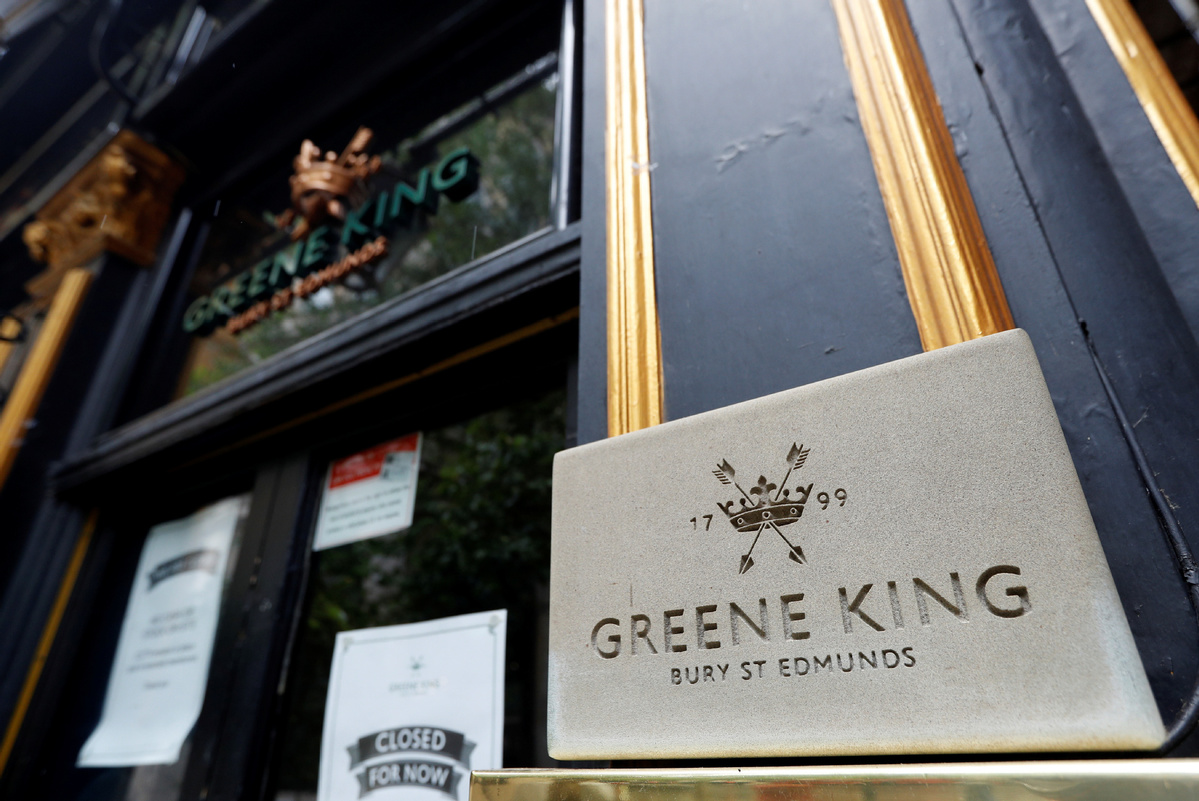UK enterprises forced to confront slavery legacy
By EARLE GALE in London | China Daily Global | Updated: 2020-07-03 08:59

Several famous and time-honored British businesses and brands are being forced to face up to claims that they owe much of their current success to past links with the slave trade, an accusation many have acknowledged and apologized for.
The naming and shaming of enterprises with purported links to the slave trade was invigorated by the Black Lives Matter protest movement that was itself energized by the death of a black man in custody in the United States in May.
The protests that flared after George Floyd's death initially focused on alleged institutional racism in US police departments but expanded to encompass racism in other organizations and countries, and extended to the criticism of modern-day institutions that may have participated in, or benefited from, the slave trade.
Experts are now talking about reparations, something that is complicated by the fact that many modern companies have changed hands often and are far removed from those that behaved so badly hundreds of years ago.
Companies that have issued apologies for past links to slavery include insurance giant Lloyd's of London and brewer Greene King.
Both have offered to contribute money to charities that promote diversity and inclusion.
Lloyd's, which traces its origins to a London coffee shop that, in 1688, started to offer maritime insurance, said it is "not proud" of the role it played in the 18th and 19th century slave trade.
"This was an appalling and shameful period of English history, as well as our own, and we condemn the indefensible wrongdoing that occurred during this period," the insurer said in a statement.
Greene King, which has been making beer since 1799, has also apologized but is a good example of the complexity of the issue because, while the company was founded by someone who profited from slavery, it is now owned by a Chinese enterprise - Hong Kong-based CK Asset Holdings - which is far removed from the issue.
Greene King's CEO Nick Mackenzie told the Daily Telegraph: "It is inexcusable that one of our founders profited from slavery and argued against its abolition in the 1800s. While that is a part of our history, we are now focused on the present and the future."
The Bank of England and the Church of England have also apologized for their connections to slavery.
The church responded to analysis by University College London that shows 96 clergymen received compensation from the British government when Parliament abolished slavery in 1833.
A church spokesperson pointed out that the institution played a leading role in ensuring slavery was abolished.
And the Bank of England said some of its past governors participated in the slave trade in the 18th and 19th centuries during "an unacceptable part of English history".
A spokesman said: "As an institution, the Bank of England was never itself directly involved in the slave trade, but is aware of some inexcusable connections involving former governors and directors and apologizes for them."
The bank said it will ensure no images of those governors remain on display at the bank in Central London.
Additionally, some senior members of Colonial Bank, which later became part of Barclays Bank, have been revealed by the UCL research to have profited from slavery, something that prompted the bank to promise to "further foster our culture of inclusiveness, equality, and diversity".
Insurer Aviva Plc has issued a similar apology as have several other companies.
Many of the enterprises were revealed by UCL's Legacies of British Slave-ownership project, which has identified 1,201 people who were involved in the slave trade and who left a commercial legacy in the UK.
Katie Donington, a historian at London South Bank University who contributed to the UCL project, said companies implicated include some owners of railways, ports and canals.
She said Britain simply would not have the wealth and development it has today without its history of empire and slavery, and claims the profits from colonialism fueled the Industrial Revolution and funded famous civic buildings and companies that are thriving today.
Catherine Hall, an emerita professor of history at UCL and chairwoman of the Centre for the Study of British Slave-ownership, wrote in the Guardian that companies' acknowledgement of past links to slavery have been "most welcome", as have announcements that they "will interrogate the place of portraits and statues, provide money to redress inequalities, and be more inclusive in their practices".
And she said the UCL hopes people will use the information "to actively engage in reparative history".
"By which we mean exploring and understanding wrongs of the past in order to address the ways in which injustices may be acknowledged and put right," she said.
Hall noted that the research has even uncovered slavery money being used to pay for art that remains on display in national galleries, and she said it helped fund the development of Australia, New Zealand, and Canada, which suggests the apologies and introspection is likely to continue for some time to come.























